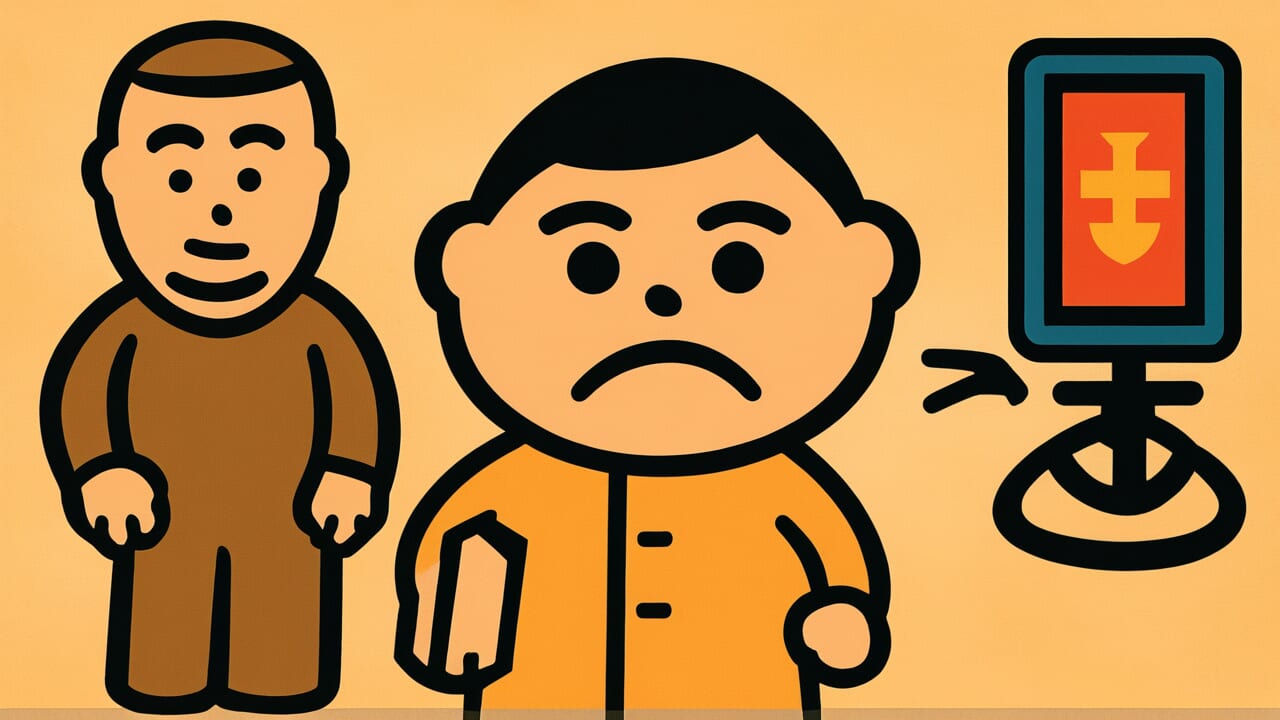How to Read “Use evil to forbid evil”
ja wo kinzuru ni ja wo motte su
Meaning of “Use evil to forbid evil”
This proverb means using questionable methods or morally dubious tactics to stop or control evil.
Ideally, we should fight evil through honorable means. But when opponents use dirty tricks, we sometimes need similar tactics to counter them effectively.
This saying applies to situations where the goal is right but the methods are questionable.
Examples include using fake identities to infiltrate criminal organizations or using harsh interrogation to get information from terrorists.
It can also describe everyday situations, like using violence to punish a bully.
Today, this phrase also serves as a warning. If you use evil methods to defeat evil, won’t you become evil yourself?
Does a righteous goal justify any means? The proverb raises these ethical questions for us to consider.
Origin and Etymology
The exact origin of this proverb is debated. However, it likely comes from ancient Chinese philosophy, especially Legalist thought.
Legalism taught that nations should be governed through strict laws and strong control. The first emperor of Qin famously adopted this philosophy.
The idea of “controlling evil with evil” comes from realistic governance theory.
It suggests that stopping evil sometimes requires authoritarian measures or methods that don’t seem righteous at first glance.
This reflects a practical mindset mixed with resignation. Idealism alone cannot eliminate evil.
In Japan, this saying likely became common among rulers and samurai during the Edo period.
They may have used it to justify using spies for security or conducting forceful interrogations.
What’s interesting is that this phrase isn’t just an excuse for those in power.
It expresses a fundamental dilemma faced by anyone fighting evil. You can’t defeat evil with righteous methods alone.
But if you use evil methods, won’t you become evil too? This contradiction explains why the saying has endured so long.
Usage Examples
- Using undercover operations to bust a crime ring is truly “use evil to forbid evil”
- Isn’t publicly shaming someone to stop their online harassment also “use evil to forbid evil”?
Universal Wisdom
This proverb reveals universal wisdom about the blurry line between justice and evil.
It shows the ultimate ethical dilemma humans face. We constantly struggle between two forces.
One voice says “evil must be stopped by any means necessary.” Another warns “using evil methods makes you evil too.”
History shows countless atrocities committed in the name of justice. Witch hunts, inquisitions, thought control.
All were done under the banner of “stopping evil.” Yet the methods were often more cruel than the evil they targeted.
Why do people use unjust means to protect justice? It comes from the frustration and helplessness of fighting evil.
Honorable methods don’t work. Following the rules means losing. This fear drives people toward “use evil to forbid evil.”
This saying has survived because it touches something deeper than mere tactics.
It reveals human weakness and the difficulty of pursuing justice. Perfect justice doesn’t exist.
Even the noblest goal can be ruined by wrong methods. Our ancestors wanted us to understand this painful truth.
When AI Hears This
Vaccines show us that the human body has an amazingly clever “enemy intelligence system.”
For example, measles vaccines use real viruses weakened to about 1/100th or 1/1000th of their original strength.
Immune cells recognize this as an enemy and memorize its characteristics. This memory lasts decades.
When the real powerful virus invades, the body is ready to attack immediately.
What’s fascinating is that the immune system can’t learn from “completely safe” things.
Injecting harmless water or sugar produces no immune response. But real deadly viruses are too dangerous.
You need “just the right amount of danger.” This is like firefighters using small training fires to learn firefighting skills.
Real fires are too dangerous, but just looking at photos doesn’t build practical skills.
Even more amazing is that nature used this strategy before humans invented vaccines.
People knew from experience that catching cowpox, a mild disease, made them resistant to smallpox.
Life discovered through evolution that training with “similar but weaker enemies” works effectively.
The strategy of using evil to prepare for evil is actually a fundamental principle of biology.
Lessons for Today
This proverb teaches us a simple but easily forgotten truth. A righteous goal doesn’t justify any means.
When you try to correct someone’s mistake, is your method truly right?
When you criticize someone on social media, do your words hurt them? When you scold a child, is your anger educational?
In daily life, we might unknowingly choose to “use evil to forbid evil.”
What matters is the courage to pause and think. Is the method I’m about to use really right?
Isn’t there a better way? Even if it takes time or seems like a detour, isn’t fighting honorably worth it?
Modern society values efficiency and results. But no matter how good the outcome, if you hurt people or violate ethics along the way, that achievement loses its shine.
This proverb reminds us of the importance of means. It’s a warning bell for modern people.



Comments